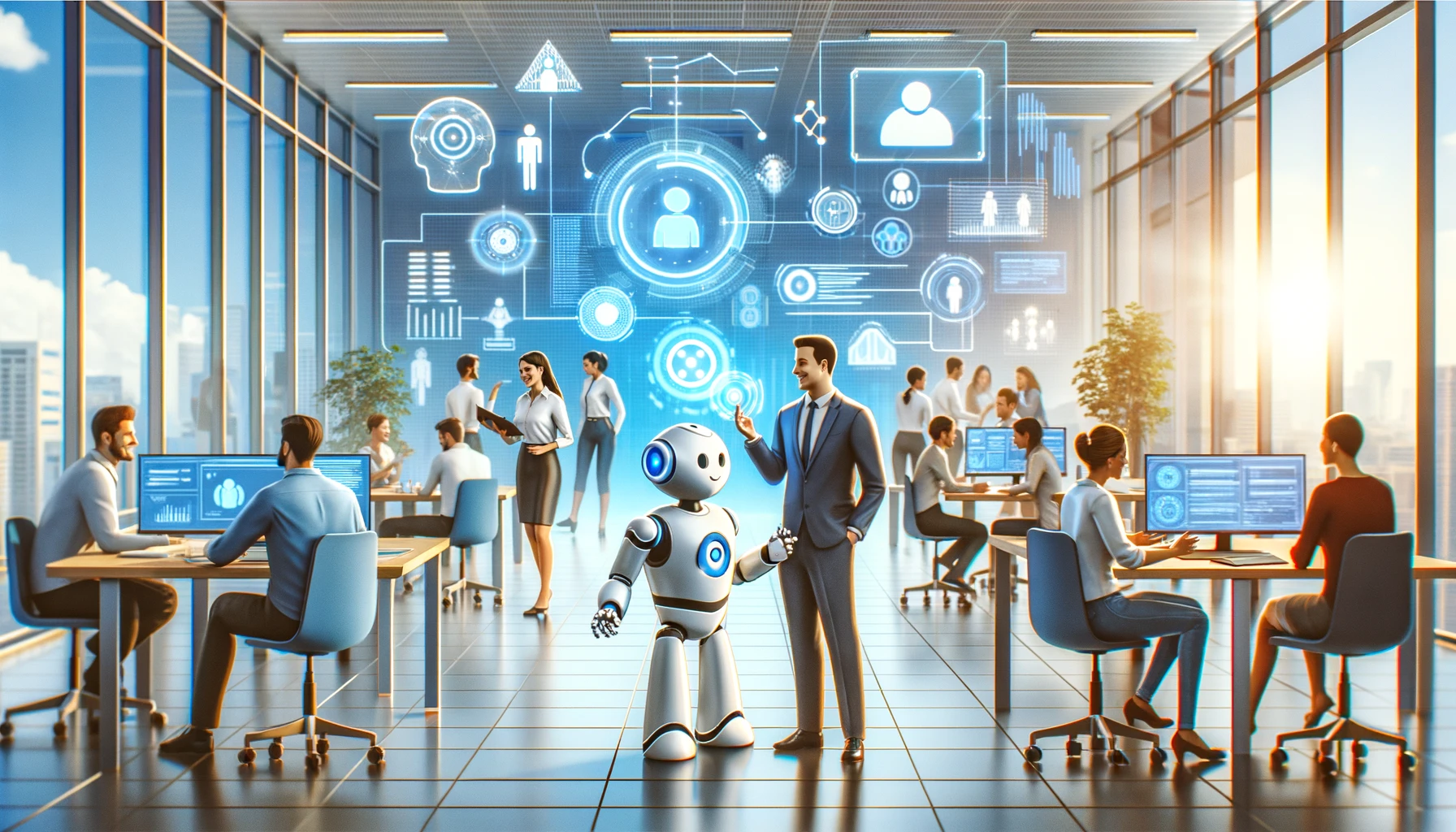As someone who has spent decades at the forefront of the tech industry, I've seen firsthand how emerging technologies can disrupt the status quo. With the rapid advancement of artificial intelligence (AI), it's natural to wonder about its potential impact on the job market, particularly for roles that rely on uniquely human skills. However, I believe that most human-centric jobs, including writers, actors, and lawyers, will not only survive but thrive in the age of AI.
The recently released Stanford University's AI Index report for 2024 supports this view, highlighting that AI systems still struggle to match human performance in tasks that require complex cognitive abilities and emotional intelligence. This finding is crucial because it underscores the enduring value of human-centric skills in the face of technological change.
Take writing, for example. While AI language models can generate impressive output, they lack the creativity, empathy, and unique voice that define great writing. As a writer myself, I know that the best writing comes from a place of authentic emotion and lived experience—something that AI simply cannot replicate. The same holds true for actors, who must draw upon their interpersonal skills and emotional depth to create compelling performances.
Moreover, human-centric jobs often require a level of adaptability and contextual understanding that AI has yet to master. Lawyers, for example, must navigate complex human dynamics, building trust with clients and persuading juries with empathy and strategic reasoning. While AI can certainly streamline legal research and document review, it is no substitute for the human judgment and interpersonal skills at the heart of legal practice.
The AI Index Report 2024 also suggests that AI is more likely to augment human-centric jobs than to replace them outright. This aligns with my experience in the tech industry, where I've seen how AI can take on routine tasks, freeing up professionals to focus on higher-level, creative work. For writers, AI-powered tools can help with grammar and style suggestions, and even help reduce writer’s block by providing ideas for new directions.
As AI continues to evolve, I believe the nature of human-centric jobs will also adapt. In a world where machines excel at data analysis and number crunching, the value of uniquely human skills like empathy, creativity, and critical thinking will only increase. The most successful professionals will be those who can effectively navigate the interface between human and machine, leveraging the strengths of both to drive innovation and solve complex challenges.
Of course, I don't want to downplay the potential for disruption. As with any major technological shift, there will be a need for workers to adapt and upskill. But I firmly believe that the core value proposition of human-centric jobs—the ability to bring a unique blend of cognitive and interpersonal skills to complex tasks—will endure.
In the end, the rise of AI presents an opportunity for humans and machines to work together in powerful new ways. By recognizing the unique strengths of both human intelligence and artificial intelligence, we can harness the power of AI to augment and enhance human-centric jobs, not replace them. The future of work belongs to those who can effectively navigate this new frontier, and I, for one, am excited to see what the future holds.
Frequently Asked Questions (Ask SAI)
- What specific skills or training should professionals in human-centric jobs focus on to remain competitive in an AI-augmented job market?
For professionals in human-centric jobs to remain competitive in an AI-augmented job market, they should focus on developing skills that emphasize their uniquely human abilities. This includes honing emotional intelligence, creativity, critical thinking, and interpersonal communication. Additionally, gaining proficiency in using AI tools and understanding their capabilities can help professionals leverage these technologies to enhance their work. Upskilling in areas like data literacy, digital collaboration, and the ability to interpret and apply AI-generated insights will also be crucial. - How can AI be integrated into human-centric jobs without compromising the unique qualities that make these roles valuable?
Integrating AI into human-centric jobs without compromising their unique qualities requires a thoughtful approach. One strategy is to use AI for routine and repetitive tasks, allowing professionals to focus on more complex and creative aspects of their work. For example, in writing, AI can assist with grammar checks and idea generation, freeing writers to concentrate on crafting authentic and compelling narratives. In the legal field, AI can handle document review and research, enabling lawyers to devote more time to client interactions and strategic decision-making. Ensuring that AI tools are designed to complement rather than replace human skills is key to maintaining the value of these roles. - What potential risks or ethical considerations should be addressed when integrating AI into human-centric professions?
When integrating AI into human-centric professions, several potential risks and ethical considerations need to be addressed. One major concern is ensuring that AI systems are transparent and their decision-making processes are understandable to human users. This is important to maintain trust and accountability. Additionally, there is a risk of over-reliance on AI, which could lead to the erosion of essential human skills and judgment. Ethical considerations also include addressing bias in AI systems, ensuring data privacy, and preventing the displacement of workers without adequate support for retraining and transition. Balancing the benefits of AI with these potential challenges is essential for ethical and effective integration.


